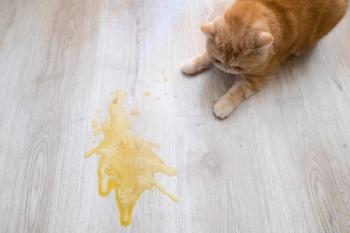
Assess the 'feline experience' to ease stress of veterinary visits
Kansas City -- Do you have catitude? According to feline expert Margie Scherk, DVM, Dipl. ABVP (feline) understanding behaviors of your feline patients can improve care and ease anxiety associated with feline visits to veterinarians.
Kansas City –
Do you have catitude? According to feline expert Margie Scherk, DVM, Dipl. ABVP (feline), understanding behaviors of your feline patients can improve care and ease anxiety associated with a veterinary visit.
Scherk made the comments Aug. 27 during a presentation at CVC in Kansas City and outlined a number of tips to help veterinarians improve cat care.
Look around your hospital, Scherk says, and try to reduce or remove stressors associated with visits and examinations.
Assess the veterinary hospital from the cat’s point of view by using visual, auditory, tactile and olfactory cues.
Keep in mind that most feline patients arrive to the clinic just having endured a frightening experience that starts with its introduction into a cage, punctuated by a car ride and culminates with exposure to other cats, dogs and people in a strange environment.
To reduce these stressors, limit the patient's exposure to other animals in the hospital. Make the cages more hospitable too, Scherk says, by working with the instinctual patterns of cats.
"If the cat doesn’t have hiding places and perches that are sufficiently hidden or apart from the other cats, then he/she is perpetually vulnerable and unable to have some control over stress," she says.
Veterinarians can create hiding places and perches by simply using towels or bedding. The top of a cat carrier can provide a ready-made perch or a place for the cat to hide if frightened. The shiny surfaces of stainless steel cages can be reduced by strategic placement of towels on the walls or doors of cages, Scherk says. Keep food away from the litter box.
"A safe environment consists not only of food, water and shelter, but also predictable routines, sounds scents and routines," Scherk says.
And you will know your patients approve, Scherk says. Look for that slow eye blink – it’s the way cats smile.
Newsletter
From exam room tips to practice management insights, get trusted veterinary news delivered straight to your inbox—subscribe to dvm360.





